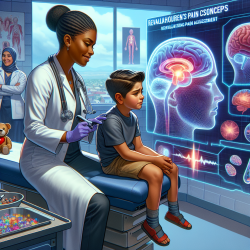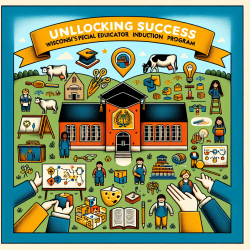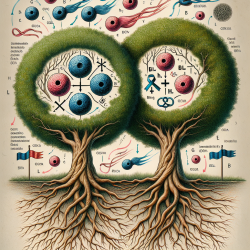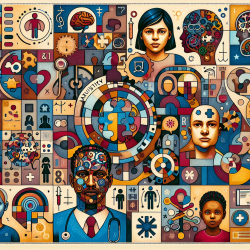Pain is not just a physical sensation; it is a complex experience influenced by biological, psychological, and social factors. This is especially true for children, whose understanding of pain can significantly impact their treatment outcomes. The research article "A Child’s Concept of Pain: An International Survey of Pediatric Pain Experts" sheds light on this critical aspect and offers insights that can enhance the skills of practitioners working with pediatric patients.
The Importance of Assessing a Child's Concept of Pain
The study involved 49 pediatric pain experts from diverse disciplines who overwhelmingly agreed on the importance of assessing a child's concept of pain. Over 80% of the experts found it very or extremely useful to evaluate this aspect in both clinical and research settings. This consensus underscores the need for practitioners to integrate such assessments into their therapeutic approaches.
Why Is It Important?
- Improved Treatment Outcomes: Understanding how a child perceives pain can guide personalized treatment plans that address not just the physical symptoms but also the psychological and social dimensions.
- Enhanced Communication: By aligning treatment strategies with a child's understanding, practitioners can communicate more effectively, reducing anxiety and improving cooperation.
- Predictive Value: A child's concept of pain can offer predictive insights into their response to treatment and potential recovery trajectories.
The Challenges with Current Tools
The research highlighted that existing adult-targeted resources are often too complex for children aged 8-12 years. While the content is useful, the language and complexity need adaptation to suit younger audiences. This gap presents an opportunity for developing child-friendly assessment tools that are both reliable and valid.
The Proposed Domains
The study identified seven key domains crucial for assessing a child's concept of pain:
- External Influences on Pain
- The Role of Learning About Pain
- Pain and Injury Relationship
- Pain as Protection
- The Mechanics of How Pain Works
- The Dynamic Nature of Brain and Body Changes
- Pain as a Conscious Experience
Pediatric experts rated these domains as highly important, suggesting that any new assessment tool should encompass these areas to provide comprehensive insights into a child's perception of pain.
A Call to Action for Practitioners
This research invites practitioners to rethink their approach to pediatric pain management by incorporating assessments of a child's concept of pain into their practice. Doing so can lead to more effective treatments and better patient outcomes. Moreover, it encourages further research into developing specialized tools that cater specifically to children's cognitive levels and needs.
The Future of Pediatric Pain Management
The development of a dedicated assessment tool for children’s concepts of pain could revolutionize how practitioners address pediatric pain. Such tools would not only aid in clinical settings but also enhance research efforts aimed at understanding and improving pediatric pain management strategies.
A Child’s Concept of Pain: An International Survey of Pediatric Pain Experts










